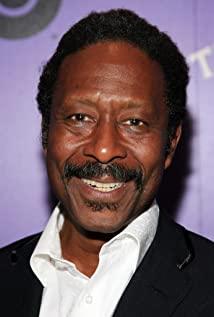The movie "Three Billboards" tells a story. Her mother, Hayes, left home after her daughter quarreled with her. She was tortured and raped to death by gangsters. This regret and anger had been held back for half a year because of the town police. Unable to catch the murderer, she was emotionally devastated, so she bought the three big billboards in the town and questioned the police chief, "The murderer is still at large, how are you doing?" This unplotted film begins here, describing what the story involves Several character psychology.
(The picture comes from the Internet)
Angry mother: Hayes couldn't forgive himself for the last quarrel with his daughter, and started to fight the world like a trapped beast. My daughter died, and I made it hard for you all. She basically has no friends, and she seizes all the related things that can vent her anger and starts to take revenge. The stupid chief of the police station, the irresponsible husband, and the son who is still alive and going to school. In desperation, she hopes to die with the world and burn down the police station.
Escaped father: Hayes' ex-husband hangs out with a 19-year-old girl. In order to forget the pain of his daughter's tragic death, he gave all his "goodness" to his little mistress. He was terrified that someone would bring up the pain, and he couldn't stay with Hayes for fear that her anger and sadness would overwhelm him. On the contrary, in order to make up for his "mistakes", he takes his 19-year-old lover wherever he goes to show others that he can play hot with "people of the children's generation" and is a man who is full of sunshine and looks forward.
Chief of Police: Mr. Willoughby has terminal cancer and doesn't want to be hated before he dies. He tried his best to eliminate the sadness that he might leave to everyone after his death, leave happy memories before committing suicide, play with his children, love his wife, and condescendingly explained to the heroine the difficulty of solving the case with too few clues, expecting to gain understanding . In the end, the director, who only thought of others, committed suicide. He saw the pain of the heroine losing her family, so he didn't want his family to suffer the same. The heroine's anger has a place to go.
Police Dixon: Two stupid police officers, with endless violence. Because the heroine humiliated his director, he arbitrarily arrested the heroine's only friend and beat up the advertiser who advertised for the heroine. He is basically a copy of the heroine, blaming the whole world for the director's death. In the end, he woke up because of the letter the director left him: Don't give up hope for your own life because of the death of your father to take care of your mother. In fact, to be your best self, you only need a little calmness. You can do it, Dixon! Dixon was burned by the heroine and lay in the hospital when he saw the orange juice brought to him by the advertiser who was disabled by him. At that moment, he began to soften. When he is hurt by this world, he hurts others, then he is no different from bad people.
▼
This movie is very Pluto. Pluto represents death, a part of us that we know exists but are unwilling to face and admit. At the same time, Pluto also alludes to energy that is invisible on the surface but is actually transformed secretly, such as a relationship that seems to be unrelated but has a dark place. When Pluto and Venus have an angle, it often represents an unusual/non-legal intimacy relationship. Lovers, illegitimate children, same-sex relationships, etc. It also represents a part of the income that cannot be obtained on the table (Venus also represents material and money). For example, someone with Venus in the 5th house of Scorpio and Pluto triad is a staff member of the casino.
In this movie, the daughter's rape and murder case, the director's suicide by drinking bullets, and the death of Dixon's father, some of the people who seem to have died and disappeared live in the lives of their relatives, or the relatives can't face this kind of disappearance. Live completely the way you want to live. For example, the mother must take revenge, or do something to tell her daughter that she has not forgotten her, so that the mother can have an account with her conscience. The director must have a little influence on others after his death, hoping that others can live better, so that his suicide will make sense. The police must take revenge on all those who have damaged the chief's reputation in order to comfort their loyalty to friendship. This energy was finally transformed by the sheriff's last words. The last words were very simple. I don't ask you to forget your pain. I understand your pain.
The director did not let the heroine forget it, but let the billboard stand for another month after her death, accompany the heroine for a longer time, and don't let her hatred go nowhere.
The director did not judge Dixon's strengths and weaknesses, but told Dixon who Dixon really wanted to be in his heart and gave him a blessing.
I know you, maybe I don't agree with you, but I will accompany you. When you are with one person to experience love, it is like two people making love together. When you accompany someone to experience pain, the pain is diluted. It's only when you want to change the direction of one's emotions that you run into countercurrents or vortices, which is why Pluto represents control, manipulation of desire, and danger. People who have practiced for a long time often use the name of love to manipulate other people's emotions. For example, I especially want to bring out the depressed patient and make him stop depression. Sometimes it works, sometimes it doesn't.
Sheriff Willoughby's approach is not manipulation, but substitution. Facing the projection of mother's hatred, and his humorous response, I will rent you an extra month, so that the whole town can see how you hate a dead person. Faced with Dixon's irritability and numbness, he used clarification. He uncovered for Dixon his lonely and powerless heart under the mask of irritability. In short, when the sheriff accompanied negative emotions, all he gave were "fresh" reactions, which surprised people who were deeply in pain for a moment. Just this moment of stagnation would have the effect of respite from death, so Something in their hearts is starting to get better.
When you don't know who to hate, stop. Then decide whether to continue to hate. When you're upset about not being able to articulate why, stop. Then decide whether to continue to be sad for a while. We have a lot of dark emotions that don't make sense, and sometimes they come and go on their own. There are also many reasons to understand but still can't get out of the darkness. Like at the end of the movie, the mother and the police go to the bad guy to settle accounts. The mother asks, "Will you kill him?" The mother was stunned and honestly said "I don't know". Sometimes we have to allow ourselves to be with the unknown.
View more about Three Billboards Outside Ebbing, Missouri reviews











